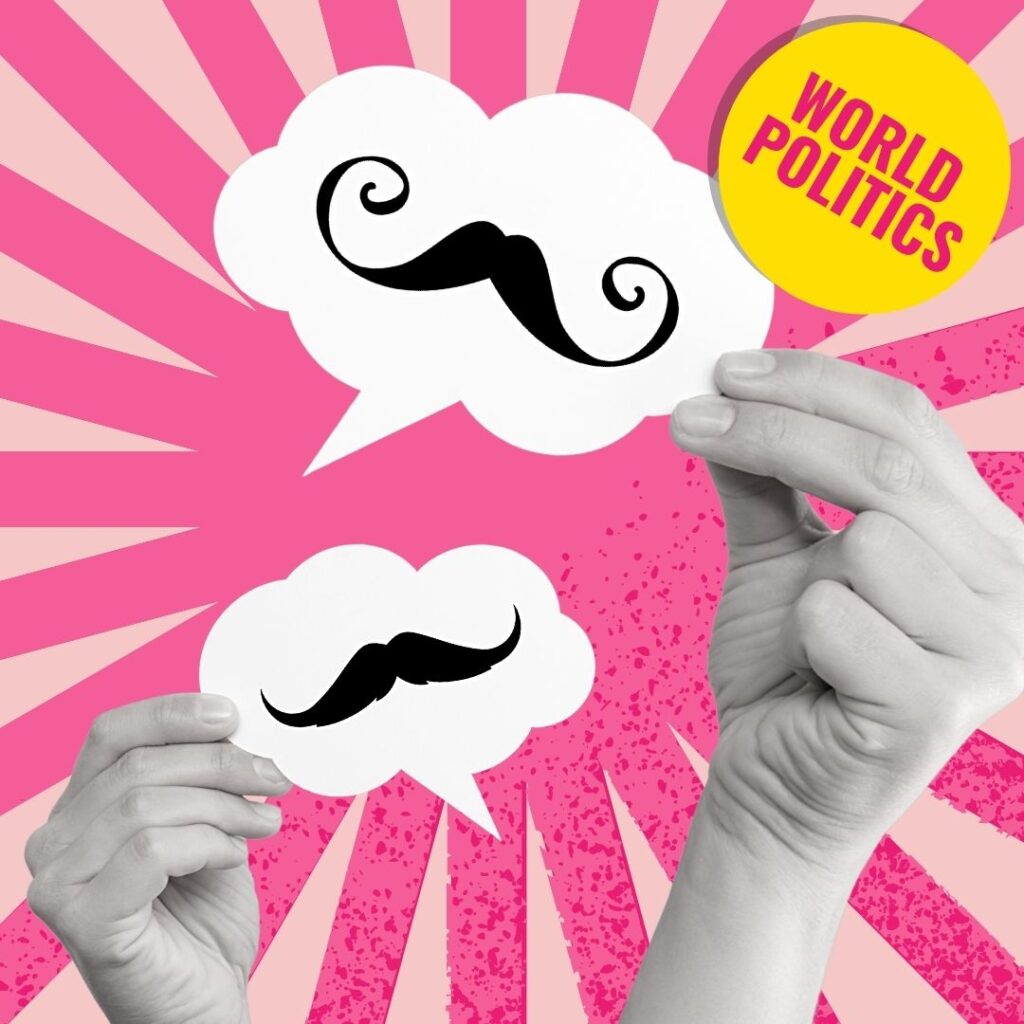November is men’s mental health month. It is Movember. The campaign was created by the charity Movember which addresses men’s mental health and suicide prevention since 2003. According to the charity, one man dies by suicide every minute across the world, with males accounting for 75% of all suicides in the UK.
The Movember campaign takes place globally every year. It asks people “to pay attention to, to talk about, raise funds for and most importantly raise awareness for men’s cancers and other men’s health issues”. By asking men to grow a moustache during this month, their moustaches turn them “into a walking, talking billboard for men’s health”. Movember movement has been keen to make its campaign accessible to everyone, asking for “Mo Bros” and “Mo Sisters” to get involved any way they can. The New Feminist Magazine has supported the campaign this year.
Besides worrying about the whole health and well-being of our beloved sons, fathers, partners, brothers, friends and so on, we also consider men’s mental health an important issue for women, kids, the elderly, and LGBT+ people health and safety. Interpersonal violence is central to this concern.
According to the Global Status Report on Violence Prevention 2014, a World Health Organization (WHO) study on interpersonal violence, despite “violence being a multifaceted problem with biological, psychological, social and environmental roots, economic inequality, alcohol misuse and inadequate parenting increase the likelihood of child maltreatment, youth violence and intimate partner and sexual violence against women.”
The report also found that “although levels of alcohol consumption, patterns of drinking and rates of violence differ between countries, there are important links between alcohol and violence across all cultures”. Harmful alcohol use affects physical and cognitive function, leading to reduced self-control, which may make some drinkers more likely to resort to violence in confrontations.
An article published in 2012 by the Journal of Family Violence analysed risk factors for male perpetrated intimate partner violence by examining mental health problems among perpetrators. Their results showed high rates of posttraumatic stress disorder, depression, generalized anxiety disorder, panic disorder, social phobia, and alcohol and drug disorders among them. “All types of mental health problems were positively associated with aggression perpetration”, the article states.
Data collected by the Global Health Data Exchange on the prevalence of death causes of males of all ages in 2019 worldwide show that:
As a matter of simple comparison, respiratory infections and tuberculosis were the cause of 29.52% of men’s deaths.
Mental disorders killed more women though:
Despite women also suffering from those disorders, including substance use, the WHO study states that “when women are killed, it is often their partner who is responsible”. WHO estimated that in 2013:
38% of female homicides globally were committed by male partners.
6% of male homicides were committed by female partners.
WHO mapped intimate partner violence in its regions. At the time of that research, the prevalence of perpetration was at the rates of:
Despite the strong evidence linking violence to mental health problems, WHO found that less than half of countries reported the availability of mental health services to address the needs of victims. One of the study’s recommendations for countries is to integrate violence prevention into health platforms.
“Women and girls, children and elderly people disproportionately bear the burden of the nonfatal consequences of physical, sexual and psychological abuse, and neglect, worldwide”, the report warns. “They also suffer a host of negative health and social consequences from these acts of violence that often last a lifetime and that are not captured in official statistics”, it adds.
Victims of child maltreatment and women who have experienced intimate partner and sexual violence have more health problems, make more visits to health providers over their lifetimes and have more hospital stays than those who have not experienced violence. Besides physical consequences inflicted by violence, mental and behavioural and sexual and reproductive health issues and chronic diseases are also frequent.
A multi-country study in Eastern Europe found ten times bigger risk of problem drinking and six times risk of drug use among young adults who had four or more adverse experiences in childhood compared to young adults without these experiences. This may also strengthen the cycle of violence.
Women exposed to intimate partner violence are almost twice as likely to have an alcohol use disorder, twice as likely to experience depression, and have a 4.5-fold increased risk of suicide attempts compared to women who have not been exposed to partner violence.
Despite there being no simple solution to the problem of violence, societies can benefit from a growing body of knowledge on how to prevent it. WHO and its partners have identified seven “best buy” strategies, most of them can be tackled by ourselves on a daily basis:
- developing safe, stable, and nurturing relationships between children and their parents and caregivers.
- developing life skills in children and adolescents.
- reducing the availability and harmful use of alcohol.
- reducing access to guns and knives.
- promoting gender equality to prevent violence against women.
- changing cultural and social norms that support violence.
- victim identification, care, and support programmes
“Abuse is not love”, says Dr Nuno Colaço, a clinical psychologist. Mental illness treatment is essential. “Those who are not conscious of their violence consider that their practice is love, they abandon before being abandoned, they fear loss. They abuse as if it was love or because they fear that love”, Dr. Colaço explains.
Movember 2021 may be over, but, as the charity states, “we’re working towards a world where men take action to be mentally well and are supported by those around them”. Every day is a day for awareness.
